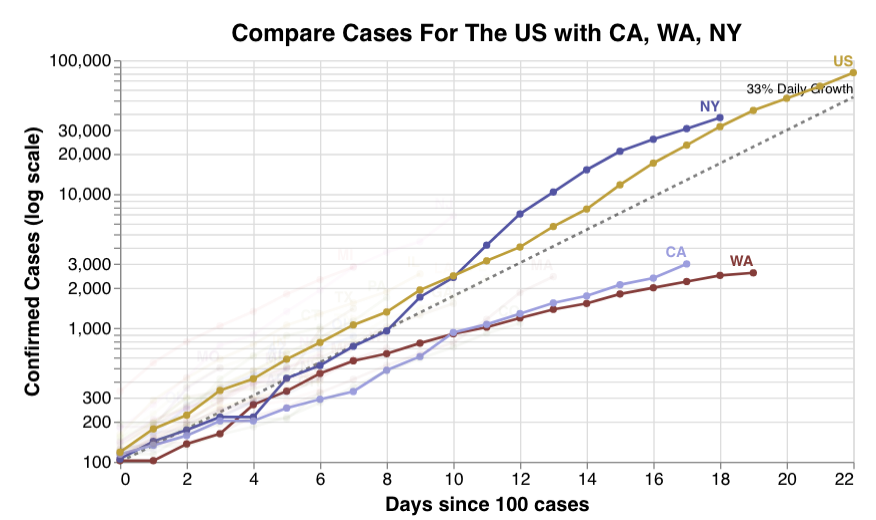Startups I Didn't Start: Synthetic A/B Traffic Agents
January 14, 2026
Anyone who’s run experiments at scale knows it’s slow, often political, and full of pitfalls. What if you could run “experiments” without real users? Continue reading...

Anyone who’s run experiments at scale knows it’s slow, often political, and full of pitfalls. What if you could run “experiments” without real users? Continue reading...

Enterprise sales are chains of cross-team handoffs, but managers rarely have visibility outside their silo. The predictable outcome is local optimization. What if you zoom out? Continue reading...

This past year, much of my reading was inspired by my travels. Mexico, Vienna, Budapest, and South Africa (photos coming soon) shaped the book list to help me make sense of where I was. That ended up pulling me toward novels and histories about memory, power, and exile. I also read a few classics, and theories of how knowledge and our models shape the world. A few fluffy books on business leadership and strategy round out the selection. The question underneath most of them was how do our ideas about money, identity, justice, even literature itself, end up remaking the worlds they describe? Continue reading...

Imagine each of us surrounded by content, tools, and teachers that know us intimately and reflect us back perfectly, but which have little in common with what others are experiencing. Continue reading...

Another round of book reviews, arriving fashionably late, but earlier than last year. While compiling the list I realized last year I’d missed two books I began in 2022 and finished in 2023. I’ve included them here, together with the books from 2024.
The through-lines this time around were people vs. systems; how media and technology mediate our lives and reorganize identity; the ethics of knowledge and progress; and the pull between belonging and otherness. I didn’t notice it myself, but Hannah pointed out as soon as she read my first draft that Judaism was another key theme. In the words of DFW, what the hell is water? Continue reading...

Stuffing the context window doesn’t mean tradeoffs go away. They just get laundered through the model. Continue reading...

Good tools give users agency; the best tools take it away and prevent mistakes. Continue reading...

Fundraising, recruiting, sales, partnerships—it all can be seen as information retrieval. Continue reading...

The Good Place is a sitcom about morality, ethics, and who gets into Heaven. Even in the afterlife, characters are trapped in capitalist logic Continue reading...

Since they are trained on human writing, LLMs are fundamentally downstream of existing human ideas. This leads people to believe that all these models can do is remix and interpolate, rehashing what we already know. I don’t buy that. Continue reading...

Nobody wants to use your LLM-powered service. They want you to solve their problems. Continue reading...

I read Augustine’s Confessions as part of a Catherine Project class. The book was repeatedly cited by Martin Hägglund in This Life, a book I had quite enjoyed reading a few years before, and he emphasized the nuance in understanding Augustine, so I chose to do a guided reading. Continue reading...

Still trying to catch up on my lack of writing this year, here’s the long awaited list of the books I read in 2023. Less than I wanted, but I’m happy with the mix. On top of a few great fiction books, I read books spanning classics, history, and economics. Unintentionally, I also ended up reading a bunch of memoirs. Continue reading...

This past Saturday, San Francisco had one of its beloved literary events. Litcrawl is a series of readings and conversations held in bookstores, bars, and cafes in the Mission District, and is part of the annual Litquake festival. The first Litcrawl event I went to this year was a discussion on the Uncanny Possibilities for AI Poetry. Continue reading...

Naming things is hard. This is not just a technical problem, but a foundational problem that we have as humans when we talk to each other and refer to specific things and people. I have four good friends named Zach – there’s a reason we invented nicknames. Leaning on my experience designing the data pipelines that created and maintained Vouch’s knowledge graph of the startup ecosystem, in this blog post, I’ll discuss some of the key ideas behind ER systems, and the challenges in building them. Continue reading...

Finding a meaningful full-time job after founding a company isn’t easy. After InScope, I wanted to work on something impactful, with a team that shared my interests and values, and which would help me grow as a leader. I took a short break to recharge batteries, then spent a few months consulting on engineering, data, and AI projects at startups building across fintech, energy, and ecommerce. Eventually, I found the opportunity I was looking for at AngelList. Continue reading...

In 2001, as the dot com boom popped, InfoWorld wrote that the rise of B2B software was driving the rebirth of seemingly obsolete enterprise resource planning (ERP) technologies. In 2024, we are seeing another such ERP revival. Continue reading...

The pull request review process introduces a lot of friction in the development cycle but serves multiple purposes, including knowledge sharing, code quality, and team alignment. It is a worthwhile investment. Continue reading...

The sheer volume of information flowing through an organization is overwhelming. Once companies grow past a handful of people, it becomes impossible for everyone to stay in the loop about everything. Managers filter. Continue reading...

If I had to summarize the main topic of 2022, it’d be meaning. Continue reading...

I started a startup, and I’m no longer part of it. Needless to say, this was not the exit I imagined. Continue reading...

Starting a company had been a pretty clear goal in my mind for years. Continue reading...

Two years ago, excited to begin a new journey, I called into an onboarding Zoom from the makeshift desk I set up in my kitchen at the start of the pandemic. Continue reading...

As Wolfram implies, building “one model to rule them all” is a stupid goal Continue reading...

At the end of 2022 Vouch held its Fall Hackathon and it was a huge success. Continue reading...

Posting this in November 2022 still counts, right? Continue reading...

The insurance industry is known for its old-fashioned way of doing things: pen and paper, PDFs full of legalese, lots of regulation, and frustratingly long weeks of back and forth to get anything done. Continue reading...

In How to Travel with a Salmon, Umberto Eco writes about the shock experienced by people visiting his house upon encountering the thousands of tomes in his personal library. Continue reading...

If you’re joining a startup for money, you’re doing it for the wrong reasons, but that doesn’t mean that money shouldn’t factor into your decision. You can build financial models around salaries and equity, and I’ll show you how to do that below. Continue reading...

As you may have heard from my previous post, I’ve left Apple. Part of my decision to leave was motivated by the fact that even before joining Apple, I knew I wanted to work at a startup. Continue reading...

After nearly six years at Apple, the time has come for me to move on. Today is my last day, so I wanted to share a bit about my journey and some of the ways my time with the company shaped me and the way I see the world. Continue reading...

One of Bitcoin’s many claims to fame is the fact that it provides a strong defense against inflation, with a supply mechanism that caps the total number of coins in circulation and controls the rate at which new money is created. This, in fact, points to how Bitcoin favors deflation, which incentivizes saving and allows us to clearly see progress in reduction of prices of the goods and services we consume. Continue reading...

2020 was a strange year. The isolation and confinement brought about by COVID-19 meant that there was a lot of time to read, but also a lot less brainpower left at the end of the day. Continue reading...

A few months ago, as the prospect of replacing my individual contributor (IC) hat with that of an engineering manager started to become real, I did what anyone who knows me would expect me to do: I dug up management books from my to-read list, and asked friends for recommendations of what to read first. Opinions varied, but Julie Zhuo’s The Making of a Manager kept popping up as a practical one to start with. Continue reading...

Breaking up big problems into a series of smaller independent tasks is one of the most valuable skills in project management. Continue reading...

Grab any book from your shelf, and read the first few pages. Chances are, you unknowingly just skipped over a few implicit references that the book’s author left there in anticipation of another learned reader, someone who, unlike you, had read the same tomes as the writer and kept the same lessons from them. Continue reading...

In Rayuela (English: Hopscotch), Julio Cortázar plays with structure and subjectivity in ways that no other writer I know of does. The novel, which the author insists in calling a _counter-novel,_forces the reader to be an active participant, not just by picking the order in which to tackle the book’s chapters, but also by deciding whether or not to skip those labeled “expendable.” Continue reading...

A couple of weeks ago, after seeing the first version of John Burn-Murdoch and co.’s Coronavirus data visualizations on the Financial Times, I decided that someone had to run the equivalent analysis aggregating at the state level for the US. Some searching led me to The COVID Tracking Project, a project by two journalists at The Atlantic, Robinson Meyer and Alexis Madrigal, which broke out the data exactly as I’d needed, and offered an easy to use API. After noodling around in a Jupyter notebook for a bit, I came up with this Continue reading...

Over the last couple of weeks, as the western world woke up to the COVID19 threat, infographics and quickly put-together charts flooded social networks. Credentialed epidemiologists and Twitter randos alike shared images showing the effects of the virus, many of them urging us to “flatten the curve.” By now, you must have seen John Burn-Murdoch’s visualization of the curves we’re being asked to flatten, or perhaps, since you’re here, my take on those same curves by state in the US. Flattening the curve is not just a meme, but a necessity. Continue reading...

In one of the strangest years of my life so far, I didn’t stop reading. While there were a couple of stints where I didn’t have the time or motivation to read for weeks at a time, I still made my goal: reading the equivalent of 24 books of 300 pages each, or ~7200 pages total. Continue reading...

I had the opportunity to go to KDD in Anchorage this past August. Since my team has incrementally moved our systems away from Python as our main language, I asked my manager whether it’d make sense for me to go to PyCon again (see my notes from 2016 and 2018), or if there’d be a more relevant conference that I should look out for this season. She suggested a few options, and KDD was one of them. I didn’t know much about it, but its focus on analytics meant that there would surely be pieces that were relevant to my day to day, and since it was Apple’s first year sponsoring it, there was extra motivation to attend. Continue reading...

I’m excited to be collabrating with Dirk Brockmann again, this time as part of his Complexity Explorables project. We built an interactive visualization of Schelling’s model for geographical segregation of human communities.
Check out the explorable visualization, and keep an eye out for others like it soon!

We know models to be untrue, but if they are close enough to reality we can use models to learn, imagine potential futures, and make better decisions. Donella Meadows’ Thinking in Systems is a study of models, and the ways in which seemingly different problems in various settings can be understood using the toolset of stock and flow analysis. Continue reading...

This is the third time that I re-cap every book I read in the preceding year. I guess this makes it a tradition. Like last year, I did not write as I read, so a lot of the nuance and the detail that I would have liked to include in this post was lost to some unreachable corner of my brain. Hopefully that part doesn’t become a tradition. Continue reading...

I’m not sure how I found Magritte in the first place, but as a teenager, his Son of Man became my avatar on every online platform where I spent afternoons and evenings during the mid-aughts. I pondered endlessly on his playful compositions, full of contradictions, false premises, and recursive repetitive themes. The motifs in Magritte’s art — paintings within paintings, windows confounding what was inside with what was outside, ambiguous and impossible light sources — invite us to question the automatic assumptions we make about what is in front of our eyes, the nature of reality, and what the objects we interact with on our daily lives actually represent. Images are treacherous, etc, etc. Continue reading...

Boston holds a special place in my life. When I was starting my senior year of high school, and my brother Max was applying for business school, he was invited to MIT for an interview at Sloan and thought it was a good idea for me to tag along on his visit. I did, and that trip was the trigger that made me consider going to college in the US. Continue reading...

I just returned from PyCon, and just like last year it was an inspiring and motivating event. The sheer size of the conference, with its three thousand plus attendees, paired with the ever expanding surface area of all the fields where Python is used means that you’re constantly overwhelmed. Continue reading...

You might be aware that I keep a list of my read and “to-reads.” The index keeps growing organically, as I walk into bookstores or converse with friends, but what really drives its growth is that curiosity is exponential: with each book I read, I add a few more to the list. I know I will never be able to finish it. Continue reading...

Every time I come back home to visit my family I notice how differently things run here in Costa Rica than in the US. There are some blaringly obvious contrasts, while others are details so subtle that it took me 7 years abroad consider. Continue reading...

A book about the history of mathematics made me think of the future of computer science. Continue reading...

If you’ve ever taken an economics class, you probably know about arbitrage: exploiting the price differences of an asset on different markets by buying low, selling high, and pocketing the difference. I recently finished reading Michael Lewis’ Flash Boys, a book that sheds light on the many faces of arbitrage in the 21st century. Flash Boys is a story about the extent to which Wall Street banks, hedge funds, and other financial institutions apply high frequency trading (HFT) techniques to gain an edge over other players in the most competitive financial markets. Continue reading...
A while back, I started thinking about putting some savings in a broad-based index fund, and I compared various brokerage providers. I was surprised to learn about one of Wealthfront’s features, which other players did not offer: direct indexing. Continue reading...
Last time I went to the library to pick up a book, I noticed a man next to me getting a stack of DVDs. Given the context, my assumption was that this guy probably doesn’t pay for a streaming service, and that he probably couldn’t afford it, either. People like him, rely on the library to get entertainment and education. This encounter made me think about how technology affects libraries and other public commons. Continue reading...

Ever since I heard Howard Schultz speak at Northwestern four years ago, I wanted to read his books. As a coffee snob who regularly complains about Starbucks’s quality, I went to the event with low expectations, and interested mostly in the cult of personality. Even though I hate their product, he did a good job and got me interested in his company. Now, years later, having finally read one out of two, I have to say I feel conflicted about Onward. The book lays out the reasons for Starbucks outsized role in the industry, and its influence in American coffee culture, but it does so with a self-indulgent tone that’s hard to take seriously. Continue reading...

As some of you might have noticed, my Twitter account has been mostly dormant for the last month or two. This was an experiment; an attempt to regain some of my dead time and be as productive as I used to be. I had done something similar once before - in 2013, I deleted the Facebook app from my phone and regained hours of my life. It’s been four years and I have not looked back. I figured Twitter could not be too different. Continue reading...

This year I finally got to attend Pycon. Having only attended a way smaller conference before (PyBay 2016) it was awesome to see the insanity that comes with cramming 3000+ pythonistas (!) into one convention center. It was totally worth it. For a less technical view of my trip to PyCon, check out my other Portland post, which has a bunch of photos, too. Otherwise: Continue reading...

I was in a bad mood. My flight to SFO had been delayed significantly, and five hours in, our pilot apologized: “Due to strong winds we’ll have to stop in LAX to refuel.” As soon as we landed, I turned off airplane mode and opened Twitter to pass the time while I waited to take off again. One thing was quickly made clear: due to an Executive Order from the White House, green card and visa holders are being detained in airports around the U.S. Fuck. Continue reading...

Complexity science is one of my favorite topics, ever. Wolfram’s elementary cellular automata are a great way to understand it, and writing code to generate them is very simple. Continue reading...

One of my goals for this past year was to read at least one book a month, purely for leisure. At the current rate, it’ll take me roughly 30 years to read all the books in my list. That’s a scary thought. While not a super ambitious goal, 12 was a step in the right direction. Continue reading...

Yeah, that’s not a typo. You’re in for a few throwbacks. Last January I compiled a list of the best content I had read over the year. With 2016 almost over, I was about to repeat the exercise, and noticed I never shared my v1. Luckily, most pieces have aged well. Continue reading...

Learn a few common antipatterns to avoid, and make your Python run faster. Continue reading...

So it’s a bit over a year since I wrote about writing. Has anything changed? Well, yes. I initially thought I’d be sharing many more blog posts about my own thoughts, but for some reason those all end up in half-baked Google docs. Hitting publish is hard. It is much easier to write one or two lines of commentary on someone else’s writing, than to produce any essay worth sharing. But there is a gray area right next to content creation: Continue reading...

Trying to make sense of what is perhaps the most basic behavior of objects and classes in Python. Continue reading...

This weekend I read two completely unrelated documents that have shaped, and in my opinion will continue to influence, the future of technology. Continue reading...

This week’s episode of EconTalk opens with an amazing quote, which I felt was to good not to share: Continue reading...

This week, I was surprised to see a piece by an Amazon SVP on my feed. What The New York Times Didn’t Tell You showed up months after Continue reading...
Today, out of curiosity I went back to the first post in the archive of Fred Wilson’s AVC. I was surprised by the terseness, and the simplicity. Continue reading...

At the end of his essays, Paul Graham thanks those who read his unpublished drafts. In this post, I try to detect communities in the data. Continue reading...

Modeling startup funding as a network of startups and investors as nodes. What is hiding in the network’s topology? Continue reading...

Investigating the hyperlink architecture of Wikipedia by displaying the links from five major cities as three-dimensional structures. Continue reading...

Predicting user preferences based on previous reading behavior for online article curation. Continue reading...

A simple implementation of the ID3/C4.5 algorithm in vanilla Python. Continue reading...

A book sharing application built in 24 hours for TechCrunch Disrupt’s 2013 hackathon in San Francisco. Continue reading...

A look at my network and the emergent structure of its groups. Continue reading...